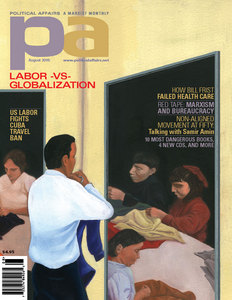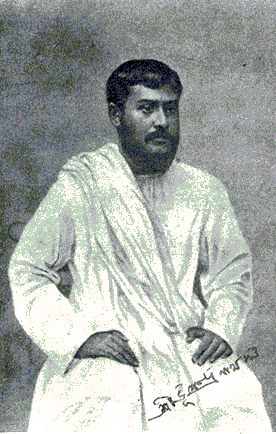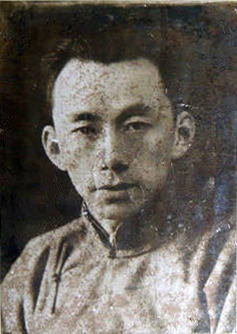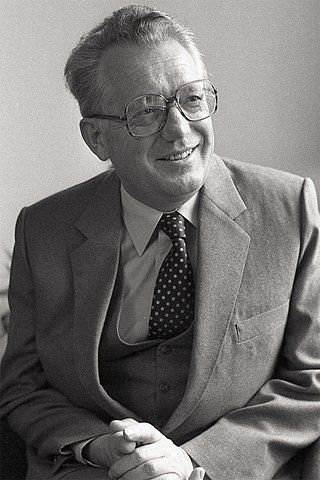
The Chinese Communist Party (CCP), officially the Communist Party of China (CPC), is the founding and sole ruling party of the People's Republic of China (PRC). Under the leadership of Mao Zedong, the CCP emerged victorious in the Chinese Civil War against the Kuomintang. In 1949, Mao proclaimed the establishment of the People's Republic of China. Since then, the CCP has governed China and has had sole control over the People's Liberation Army (PLA). Successive leaders of the CCP have added their own theories to the party's constitution, which outlines the party's ideology, collectively referred to as socialism with Chinese characteristics. As of 2023, the CCP has more than 98 million members, making it the second largest political party by membership in the world after India's Bharatiya Janata Party.

The Nanchang Uprising was the first major Nationalist Party of China–Chinese Communist Party engagement of the Chinese Civil War, begun by the Chinese Communists to counter the Shanghai massacre of 1927 by the Kuomintang.

Chen Boda, was a Chinese Communist journalist, professor and political theorist who rose to power as the chief interpreter of Maoism in the first 20 years of the People's Republic of China. Chen became a close associate of Mao Zedong in Yan'an, during the late 1930s, drafting speeches and theoretical essays and directing propaganda.
İsmail Bilen was a Turkish politician. He was elected as General Secretary of the Central Committee of the Communist Party of Turkey in 1974.

The Provisional Municipal Government of the Special City of Shanghai, also known as the Shanghai Civil Government or Shanghai Commune, was a provisional administration that briefly governed the city of Shanghai during the Northern Expedition. Established by people's committees with the assistance of Chen Duxiu, Zhou Enlai, and the Chinese Communist Party (CCP), the commune briefly administered the city of Shanghai before its forceful dissolution by order of Chiang Kai-shek. The dissolution of the Shanghai Commune would lead to the 1927 Shanghai massacre, and the onset of the Chinese Civil War.

The Guangzhou Uprising, Canton Uprising or Canton Riots of 1927 was a failed communist uprising in the city of Guangzhou (Canton) in southern China.

Political Affairs Magazine was a monthly Marxist publication, originally published in print and later online only. It aimed to provide an analysis of events from a working class point of view. The magazine was a publication of the Communist Party USA and was founded in 1944 upon the closure of its predecessor, The Communist, which was founded in 1927. Well-known editors of Political Affairs Magazine included V. J. Jerome, Gus Hall, Hyman Lumer, Herbert Aptheker, Gerald Horne, and Joe Sims. Other editors included Max Weiss. In 2016, the magazine stopped publishing articles and merged with People's World.

The Nationalist government, officially the National Government of the Republic of China, refers to the government of the Republic of China from 1 July 1925 to 20 May 1948, led by the nationalist Kuomintang (KMT) party.

The Shanghai massacre of 12 April 1927, the April 12 Purge or the April 12 Incident as it is commonly known in China, was the violent suppression of Chinese Communist Party (CCP) organizations and leftist elements in Shanghai by forces supporting General Chiang Kai-shek and conservative factions in the Kuomintang. Following the incident, conservative KMT elements carried out a full-scale purge of communists in all areas under their control, and violent suppression occurred in Guangzhou and Changsha. The purge led to an open split between left-wing and right-wing factions in the KMT, with Chiang Kai-shek establishing himself as the leader of the right-wing faction based in Nanjing, in opposition to the original left-wing KMT government based in Wuhan, which was led by Wang Jingwei. By 15 July 1927, the Wuhan regime had expelled the Communists in its ranks, effectively ending the First United Front, a working alliance of both the KMT and CCP under the tutelage of Comintern agents. For the rest of 1927, the CCP would fight to regain power, beginning the Autumn Harvest Uprising. With the failure and the crushing of the Guangzhou Uprising at Guangzhou however, the power of the Communists was largely diminished, unable to launch another major urban offensive.

The Irish Worker League was an Irish communist party, established in September 1923 by Jim Larkin, following his return to Ireland. Larkin re-established the newspaper The Irish Worker. The Irish Worker League (IWL) superseded the first Communist Party of Ireland and became Ireland's affiliate with the Communist International.

The 15th Congress of the All-Union Communist Party (Bolsheviks) was held during 2–19 December 1927 in Moscow. It was attended by 898 delegates with a casting vote and 771 with a consultative vote. The congress ended an inner-party struggle, as Leon Trotsky, Gregorii Zinoviev and other opponents of Joseph Stalin were expelled from the party.

Bhupendranath Datta was an Indian communist revolutionary and later a noted sociologist and anthropologist. He was younger brother of Swami Vivekananda, and he was also associated Rishi Aurobindo in his political works. In his youth, he was closely associated with the Jugantar movement, serving as the editor of Jugantar Patrika until his arrest and imprisonment in 1907. In his later revolutionary career, he was privy to the Indo-German Conspiracy. The Asiatic Society today holds the Dr. Bhupendranath Datta memorial lecture in his honour.

The Communist Party of Kirghizia was the ruling political party and the section of the Communist Party of the Soviet Union in the Kirghiz Soviet Socialist Republic.
The Communist Academy was a higher educational establishment and research institute based in Moscow. It included scientific institutes of philosophy, history, literature, art and language, Soviet construction and law, world economy and world politics, economics, agrarian research as well as institutes of natural and social science. It was intended to allow Marxists to research problems independent of, and implicitly in rivalry with, the Academy of Sciences which long pre-existed the October Revolution and the subsequent formation of the Soviet Union.

The Japan Labour-Farmer Party was a socialist political party in Japan between December 1926 and December 1928. During its existence, it occupied a centrist position in the divided socialist movement.

Wang Kunlun, birth name Wang Ruyu (王汝虞), was a Chinese politician who held high-profile positions, at different times, in both the Nationalist and Communist parties. Born 1902 in Baoding, Hebei province to a wealthy household, he participated in the May Fourth Movement while studying at Peking University and became involved with Chinese revolutionaries, at one point meeting in person with Dr. Sun Yat-sen. He joined the Nationalist party as a left-leaning member and served as Chief Secretary of the Political Department of the Headquarters of the National Revolutionary Army during the Northern Expedition, but became disillusioned with Chiang Kai-shek's leadership after Chiang initiated a major crackdown against Communists in April 1927. He subsequently joined the Communist Party in secret and used his political positions within the Nationalist government to aid the Communists. He was among a group of members of the Kuomintang who broke away to form the Revolutionary Committee of the Kuomintang in 1948. He would serve various government positions after the Communist victory, including vice-mayor of Beijing and vice-chairman of the National Committee of the Chinese People's Political Consultative Conference.

Communism in Sumatra has historically had an influence in the politics and society of Sumatra. Padang, Pariaman, Silungkang, Sawah Lunto, Alahan Panjang, and Suliki of West Sumatra have been cited as an area which was particular active in communism.
Vietnamese Revolutionary Youth League, or Thanh Niên for short, was founded by Nguyen Ai Quoc in Guangzhou in the spring of 1925. It is considered as the “first truly Marxist organization in Indochina” and “the beginning of Vietnamese Communism”. With the support of Chinese Communist Party and the Kuomintang Left, during the period of 1925-1927, the League managed to educate and train a considerable number of Marxist-Leninist revolutionaries, preparing the prominent leadership for the Communist Party of Vietnam and the Vietnamese Revolution. At the time, Vietnam was part of colonial French Indochina.

Dušan Čkrebić was a Serbian politician who served as the Prime Minister, President of the Assembly and President of the Socialist Republic of Serbia.

The Wuhan Nationalist government, also known as the Wuhan government, Wuhan regime, or Hankow government, was a government dominated by the left-wing of the Nationalist or Kuomintang (KMT) Party of China that was based in Wuhan from 5 December 1926 to 21 September 1927, led first by Eugene Chen, and later by Wang Jingwei.
















